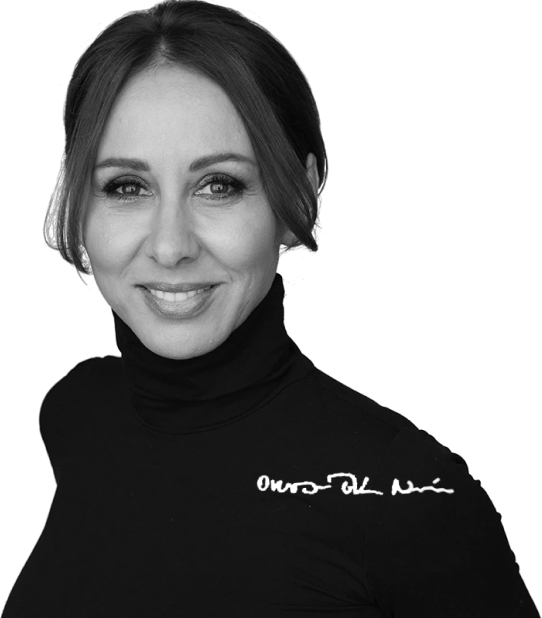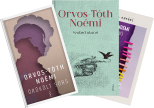About me
I am a clinical psychologist specialized mainly in passing on of transgenerational traumas, repetition of dysfunctional individual and family operations for generations as well as possibilities of healing from these and achieving flexible adaptability and post-traumatic growth.

When did I decide to pursue psychology? Perhaps when I didn’t even know the meaning of the term. I have been observing people from my early childhood, watching how they treat each other, and I noticed already then how much harm they cause to each other, wittingly or unwittingly. I realized that it is the capability of being really present, accepting others and emotional self-control what is missing. Sometimes, I saw tense tempers, and at other times, offended withdrawal. I decided that I wanted to understand why it is hard for us to establish harmonic relationships, why we cause so much pain and disappointment to each other.
I just happened to start my psychology studies only after a diversion into the private sector. What I felt a waste of time back then is now an important experience for me, as the world of finances taught me the meaning of accurate planning, the measurement of results and structural thinking.
The topic of transgenerational traumas raised my interest already at the beginning of my university years. This is when my daughter was born, and her birth activated unprocessed experiences of loss inherited, as it turned out later, from may ancestors. The panic and fear of losing her encouraged me to find out what this overwhelming feeling was and why I felt as if part of the fear originated from someone else. The topic of transgenerational inheritance came to me first only vaguely, and then more and more definitely. My first shocking revelation resulted from my family tree research. Almost all of my ancestors suffered the loss of the death of small children. As I was pinning my family tree, the number of symbols of loss was increasing. It became also clear that each relationship was burdened by loss: the lives of my ancestors were affected by early loss of parents, shocking fates of orphaned small children, sudden death of young spouses. Love and death have been accompanying each other for generations in our family.
By the time the details of my own history became clear to me, I already knew that I had found the way.
As a psychologist with a transgenerational approach, I help my patients understand the invisible ways their ancestors control their devisions, affect them in making choices, or limit their free will.
The healing processes of the communities and of the whole society are also necessary for the individual’s healing. Wounds caused by collective and historical traumas are still open. The lack of solidarity showing the healthy functioning of a society and the deepening polarization of communities clearly indicate that we still have to pay off debts accumulated during the decades.
When we want to understand our difficulties, to explore our anxieties, to find the reasons for our failed relationships and repeated setbacks, it often becomes clear that we can find the reasons beyond our own lives. The traumas, failed relationships, loss of sense of safety, and unprocessed fears of our ancestors still live in us. The routes of transfer are often clear: they appear in the forms of spoken truths of life, expectations, and absolute rules. Another time, the invisible messages are transmitted by their vague indications, ways of live, behavior or typical attitude towards the world. But they pass on and we accept our inheritance from them also via our cells, wittingly or unwittingly. Based on several decades of work with my patients, I can clearly state that there is no one person whose fate can be understood without the transgenerational concept.
To see that we are all descendants of traumatized ancestors, it is enough for us to see the stories of only two or there generations. The lives of our ancestors were challenged by wars, displacements, deportations, and abrupt changes of political regimes. In addition to historical traumas, our mental health has been broken also by dysfunctional family systems, alcoholism affecting masses, existential hopelessness, physical, emotional and sexual abuses.
To stop passing on deficiencies carried for generations and the destructive effects of the traumas, we have to embark on the journey of healing.
I believe that getting familiar with the past of our family and our collective may help us live a more harmonious, complete and authentic life. The healed trauma of a single person may have a beneficial effect on the lives of generations.
Subscribe to my newsletters so that you are the first to get information on the lectures and novelties!


